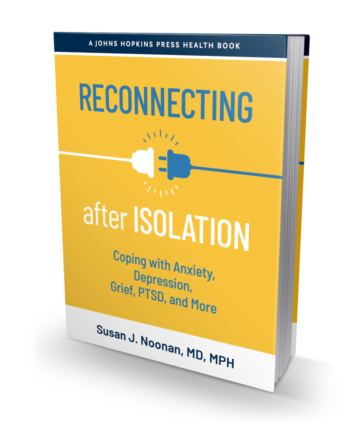I had an interesting conversation the other day about the losses we all experience when receiving a diagnosis of mental illness such as depression or bipolar disorder. Yes, losses. At first glance it seems unfair, given that there is such a large burden to carry with the illness. But it does happen and is something we need to acknowledge and deal with, otherwise the effect of these losses will come back to haunt you.
What do I mean by losses? Well, it could be the loss of time from your life while you were ill; loss of opportunity from school, work, or life; loss of the life you would have had if you were not ill; loss of relationships, a spouse, friends. There could be financial losses from high medical expenses or modifications to your job or a job loss; perceived loss of standing in your community; or loss of self-confidence and self-esteem. And other losses I haven’t listed here.
That seems quite overwhelming. But some people who have depression don’t think of these as losses. They think that they don’t deserve certain things in life, so when a loss happens it’s what they expect for themselves. Their lives are miserable, and they don’t perceive loss of time or opportunity as a loss. It somehow doesn’t apply to them. They feel that they are not deserving of a spouse or friendships, so losing those people is not perceived as a loss. It’s what they expect. And with depression, self-confidence and self-esteem are generally impaired as a part of the illness. The person’s thought processes are so distorted that he/she does not realize it has happened.
So what do you do? The first thing to do is to acknowledge that you suffered one or several of these losses. Then you must go through a type of grieving process. Some people begin with denial or become angry with the sources of their loss. Others find their depression worsening. These are not particularly helpful to your recovery from the loss. It is more helpful to sit with it for a while, think about it and come to some acceptance of the fact that you have experienced this loss. This involves coming to terms with the lost opportunities and time from your life. It involves acceptance of the fact that others have disappointed you, let you down, or were not supportive during your time of need. Then you will be able to move on, making your life the best you can from this point forward.
What happens if you do not do this? The pain from these losses will still be present in the back of your mind. It is a burden you will carry with you each day. If you try to suppress it, that will require much emotional effort and energy. It will surface on occasion and cause you more emotional pain, continuing to haunt you until you deal with it adequately. So, it’s important that you do allow yourself the time to grieve these losses. Then move on.
Stay well!

